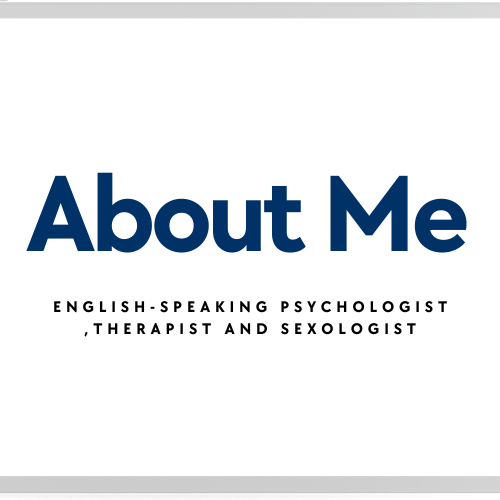Psychological Diagnosis and psychotherapy
in Berlin
As an English-speaking psychologist and therapist in Berlin, I help patients take control of their lives with a dedicated and evidence-based approach.
My therapeutic style is rooted in:
- Cognitive Behavioural Therapy (CBT)
- Acceptance and Commitment Therapy (ACT)
- Dialectical Behaviour Therapy (DBT)
Also combined with elements of Schema Therapy and mindfulness to offer an individualised program tailored to the needs of each person.
Therapy should fit you, not you to therapy.
With this combination therapy model, you can gain insight about your past experiences as well as strategies for better coping mechanisms which will enable you to make decisions that improve your overall psychological wellbeing and happiness.
Personalized Care: Evidence-Based Therapy in Berlin
Discover how a precise diagnosis paves the way for transformative therapy in Berlin, enabling you to navigate life's challenges with clarity and resilience.
The goal of therapy is to help you deal with past and present challenges more effectively and make future decisions that will make you feel better. You will receive support in making decisions necessary to improve your well-being and deal with what blocks you in life.
Psychotherapy can be a powerful tool for personal growth, but it's difficult to predict how long each journey may take. Individual motivation and willingness to work on oneself between sessions are key influencing factors in determining the duration of treatment.Embark on a journey of self-discovery and healing in Berlin, where accurate psychological diagnosis merges with a Evidence-Based Therapy.
LGBTIQA+ Friendly Psychologist in Berlin
I'm not here to judge you. We try to create an atmosphere of trust that allows you to open up. Your time and your space.
I look forward to meeting you.
Individual Psychotherapy
Individual therapy allows the therapist to fully focus on the patient, is a collaborative and tailored therapeutic process
During your initial psychotherapy consultation, we partner together to uncover the motivations for stepping into a therapeutic relationship. We'll take time to explore what is happening in life and how it has brought you here today. This helps us gain an understanding of your needs.
I provide a safe and confidential space for us to explore your concerns, set goals, and work towards your personal growth and well-being.
Psychological Diagnosis
During your psychological diagnosis, I as an English-speaking psychologist in Berlin will employ various assessment tools, including clinical interviews, standardized questionnaires, and psychological tests, tailored to your specific needs.
These assessments will help uncover underlying factors contributing to your emotional distress, such as underlying trauma, cognitive patterns, or behavioral patterns. Our goal is to create a comprehensive profile of your mental health, allowing us to develop a personalized treatment plan.
Additionally, psychological diagnosis can help individuals gain a better understanding of their experiences, reduce stigma associated with mental health, and provide a sense of validation and relief by putting a name to their struggles.
Sexual therapy
The goal is to help people overcome physical and emotional challenges to improve the patient's quality of sex life.
We start our meetings with a comprehensive diagnostics. A well-conducted diagnosis allows us to develop an individual therapeutic plan. Which shortens the duration of the therapy itself.
My mission is to aid individuals and couples in their quest for a fulfilling sex life. Through specialized sessions, I offer support to combat physical and emotional barriers that stand between them and greater levels of sexual pleasure.
By customizing my services for each case, I strive to foster healthy relationships through gender-specific approaches tailored around an individual's needs.
Couples therapy
The goal is to solve the problem together, improve the quality of the relationship or improve communication between partners and other relationship issues.
Couples therapy is a steadfast process towards bettering relationships and overcome issues. My sessions are designed to help couples discover their individual biography, better understand the dynamics of the relationship and make positive changes that will improve communication between partners for lasting effects.
Group psychotherapy
Group therapy offers an advantageous approach to treatment, combining individual sessions with powerful "group factors" such as increased solidarity and hope-sharing. Evidence has shown this effective method of healing is capable of addressing a variety of challenges - from depression and anxiety, to relationship difficulties or post traumatic symptoms. With its ability to bolster self esteem in therapeutic circles, group therapies may be the ideal choice for any emotional obstacle preventing you from leading your healthiest life possible.
Group therapy is just as effective as individual therapy for many conditions, including:
-depression
-anxiety
-relationship difficulties
-post traumatic symptoms
-improving self-esteem
English speaking psychologist in Berlin
Appointments can only be made upon request, please send an e-mail.
Please contact me if you have any questions.


